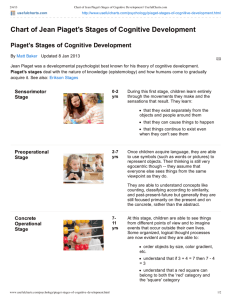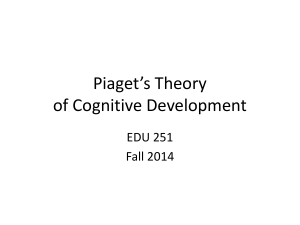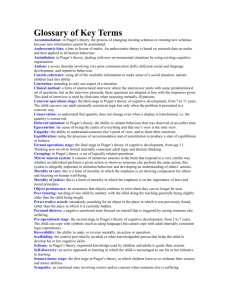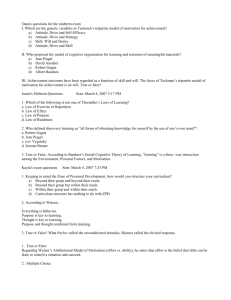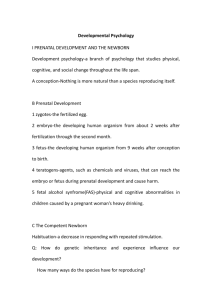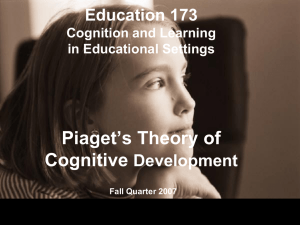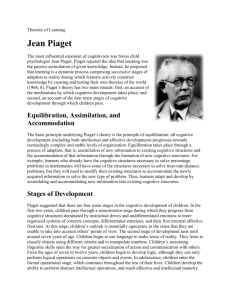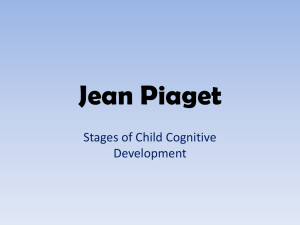Paper
advertisement
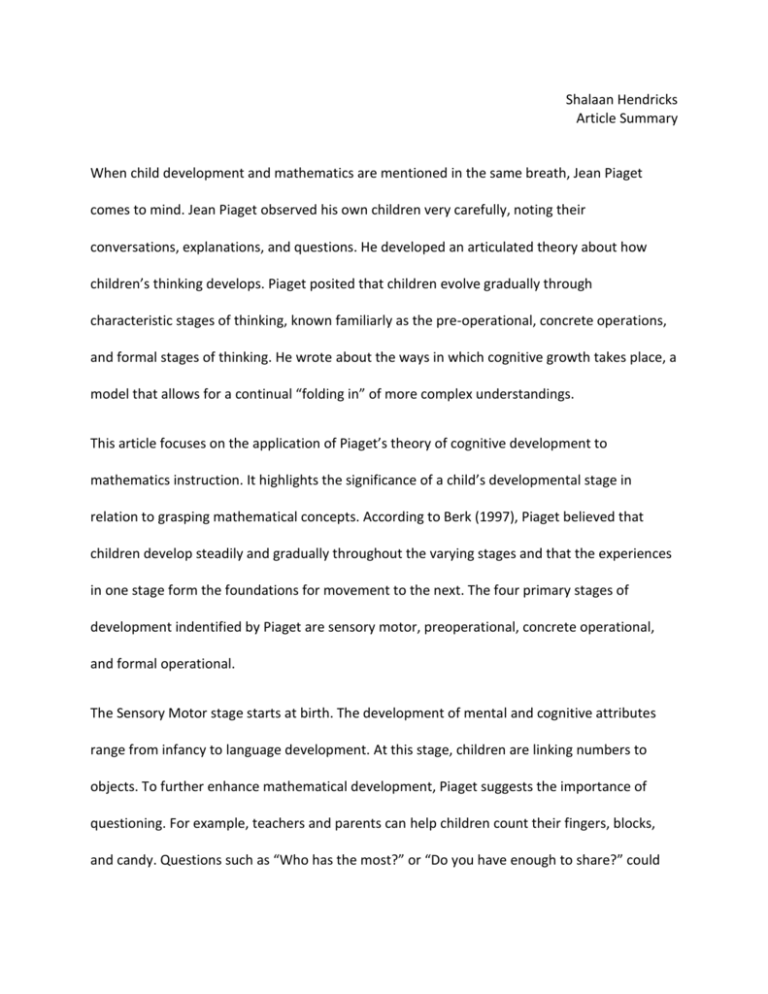
Shalaan Hendricks Article Summary When child development and mathematics are mentioned in the same breath, Jean Piaget comes to mind. Jean Piaget observed his own children very carefully, noting their conversations, explanations, and questions. He developed an articulated theory about how children’s thinking develops. Piaget posited that children evolve gradually through characteristic stages of thinking, known familiarly as the pre-operational, concrete operations, and formal stages of thinking. He wrote about the ways in which cognitive growth takes place, a model that allows for a continual “folding in” of more complex understandings. This article focuses on the application of Piaget’s theory of cognitive development to mathematics instruction. It highlights the significance of a child’s developmental stage in relation to grasping mathematical concepts. According to Berk (1997), Piaget believed that children develop steadily and gradually throughout the varying stages and that the experiences in one stage form the foundations for movement to the next. The four primary stages of development indentified by Piaget are sensory motor, preoperational, concrete operational, and formal operational. The Sensory Motor stage starts at birth. The development of mental and cognitive attributes range from infancy to language development. At this stage, children are linking numbers to objects. To further enhance mathematical development, Piaget suggests the importance of questioning. For example, teachers and parents can help children count their fingers, blocks, and candy. Questions such as “Who has the most?” or “Do you have enough to share?” could be an essential addition of everyday conversation with children as young as two or three years of age. Another activity to improve mathematical development is connecting mathematics and literature. By using pictorial illustrations, children are able to see and point to what they are counting. An additional aspect of utilizing literature is it exposes children to reading at an early age. This can contribute to advanced reading skills and increased comprehension. The Preoperational stage includes the language abilities of children. It is during this stage when teachers present students with blocks, sand, and water. The teacher later asks the student about the problems that he or she may have incurred while working with such objects. It is also during this stage when students are not able to perform reverse operations and when they are not able to determine much about dimension and volume. For example, if a student is adding 2 numbers together (2+9=11), he or she cannot perform the reverse operation (11-9=2) of this simple addition problem. These types of problems are referred to as fact families. During the Concrete Operational stage, there is a great increase in language. It is at this point when students are able to use seriation and classification in separating objects. Seriation is the ability to order objects from small to large or large to small. Grouping objects consists of being able to put like colors together or like shapes together. The use of manipulatives such as counters, dice, spinners, pattern blocks and hands on activities are a plus at this stage. At this point students gain more experiences that will help them with more advanced mathematics. Children in the Formal Operations stage are able to think on a deeper level. These children are able to form hypotheses and deduct the obvious from certain situations. These children are able to develop abstract thought patterns without having to refer to concrete situations. Reasoning skills such as clarification, inference, evaluation, and application are present during this stage. Other theorists have often criticized the works of Piaget. They argue that he does not offer a “complete description of cognitive development”. It is said that he does not give young learner the full credit that they deserve. He has also been criticized for giving the older learners more credit. All students are not at the same level at the same time. This may vary from student to student. This is one of the reasons why Piaget feels it’s important for teachers to be familiar with each stage. He encourages educators to implement games such as marbles and bowling to their curriculum because these type games require students to compare numbers. In conclusion, Piaget wanted to familiarize every teacher with his theory. He felt as though knowing these stages would be an asset to any educator for it will enable them to plan more age appropriate activities for their students. Ojose, B. (2008). Applying Piaget's Theory of Cognitive Development to Mathematics Instruction. The Mathematics Educator , Vol. 18, No. 1, 26-30.
